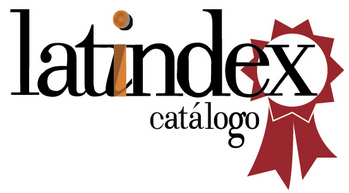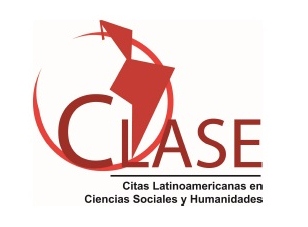En torno al discurso epidíctico. El elogio de Fidel Castro al Che Guevara.
Resumen
Recepción: 16 de octubre de 2017 Aceptación: 15 de noviembre de 2017 Este artículo tiene un doble objetivo. Por un lado, se propone reflexionar sobre la relación entre discurso epidíctico, argumentación, polémica e ideología; por el otro, analizar esta problemática en dos discursos epidícticos que Fidel Castro pronunció en torno al Che Guevara. La relación entre discurso epidíctico, argumentación y polémica ha sido objeto de interpretaciones contrapuestas. En particular, si este género oratorio busca o no el cambio pragmático de una situación, si apoya o no una acción y si es ajeno o no a la polémica. La función ideológica del discurso epidíctico, en cambio, ha generado mayor acuerdo. Desde un enfoque que recupera propuestas sobre el discurso epidíctico tanto en la Antigüedad grecorromana como en discursividades contemporáneas, se observa que las líneas argumentativas e ideológicas que promueve Castro en cada coyuntura en la que pronuncia sus discursos en elogio al Che Guevara inciden en el tipo de virtudes que en este pondera y en el modo en que lo construye como modelo a seguir.Citas
Corpus
CASTRO, F. (2014 [1967]). “Discurso pronunciado por el Comandante Fidel Castro Ruis, Primer Secretraio del Comité Central del Partido Comunista de Cuba y Primer Ministro del gobierno revolucionario, en la velada solemne en memoria del Comandante Ernesto Che Guevara, en la Plaza de la REVOLUCIÓN, el 18 de octubre de 1967”. En P. L. GORLA, Patria o muerte, ¡venceremos! La retórica de Fidel Castro (pp. 167-179). La Habana, Cuba: UH Editorial.
CASTRO, F. (2014 [1987]) “Discurso pronunciado por el Comandante Fidel Castro Ruiz, Primer Secretario del Comité Central del Partido Comunista de Cuba y Presidente de los Consejos de Estado y de Ministros, en el acto central por el XX aniversario de la caída en combate del Comandante Ernesto Che Guevara, efectuado en la ciudad del Pinar del Río, el 8 de octubre de 1987, ‘Año 29 de la Revolución’”. En P. L. GORLA, Patria o muerte, ¡venceremos! La retórica de Fidel Castro (182-205). La Habana, Cuba: UH Editorial.
Fuentes y estudios
AMOSSY, R. (2000). L’argumentation dans le discours. París: Nathan.
ARISTÓTELES. (1978). Retórica. (Intr., trad. y notas de I. Granero). Buenos Aires: EUDEBA.
ARISTÓTELES. (1999). Retórica. (Intr., trad. y notas Q. Racionero). Madrid: Gredos.
CASEY, E. S. (2004). “Public Memory in Place and Time”. En K. R. Phillips (ed.) Framing Public Memory (pp. 17-44). Alabama: University of Alabama Press.
GORLA, P. L. (2010). La retórica del héroe. Análisis retórico del discurso de Fidel Castro en la Velada Solemne del 18 de octubre de 1967. Boletín de la Real Academia de Extremadura de las Letras y las Artes, 18: 531-545.
GORLA, P. L. (2014). Patria o muerte, ¡venceremos! La retórica de Fidel Castro. La Habana: Editorial UH.
LAUSBERG, H. (1975). Elementos de retórica literaria. Introducción al estudio de la Filología clásica, románica, inglesa y alemana. Madrid: Gredos.
MAINGUENEAU, D. (2002). Problèmes d’ethos. Pratiques, 113/114: 55-67.
MCCOMISKEY, B. (2002). Gorgias and the New Sophistic Rhetoric. Carbondale: Southern Illions University.
PERELMAN, Ch. y L. OLBRECHTS-TYTECA (1950). Logique et rhétorique. Revue philosophique de la France et de l´étranger, 140: 1-35.
PERELMAN, Ch. y L. OLBRECHTS-TYTECA. (1989). Tratado de la argumentación. La nueva retórica. Madrid: Gredos.
PERNOT, L. (2015). Questioning the Stakes of Ancient Praise. Austin: University of Texas Press.
PERNOT, L. (2013). La retórica en Grecia y Roma. México: Universidad Nacional Autónoma de México.
PERNOT, L. (1993). La Rhétorique de l’éloge dans le monde gréco-romain. 2 vols. Paris: Institut des Études Augustiniennes.
PERNOT, L. (1986) Les topoi de l’éloge chez Ménandros le Rhéteur. Revue des Études Grecques, 99: 33-53.
QUINTILIANO, M. F. (1943). Instituciones Oratorias. Buenos Aires: Editorial de Buenos Aires.
RODRÍGUEZ BERUFF, J. (1995). Cuba en crisis: perspectivas económicas y políticas. Puerto Rico: Editorial de la Universidad de Puerto Rico.
ROMEO, A. (2012). Cicerone e l’elogio retorico. Per una lettura del De Oratore. Cosenza: Luigi Pellegrini Editore.
RUELLE, E. (2010). Aristote: Poetique et Rhétorique. Montana: Kessinger Publishing.
VIVIAN, B. (2006). Neoliberal Epideictic: Rhetorical Form and Commemorative Politics on September 11, 2002. The Quarterly Journal of Speech, 92: 1-26.
Una vez que un texto es aceptado para su publicación en Quadripartita Ratio, sus autores deben firmar dos documentos de carácter legal: una Licencia de uso y una Declaración de autoría.
Con la Licencia de uso, los autores autorizan la publicación de su obra y la difusión de ésta (integración en bases de datos, difusión en nuestras redes sociales, reediciones posibles, etc.). No obstante, se autoriza la descarga, reproducción y distribución de todos nuestros contenidos publicados, siempre que no se modifique el contenido y se indique su origen (nombre de la revista, volumen, número, páginas y dirección electrónica del documento).
Con la Declaración de autoría, los autores manifiestan que la obra es de su autoría, original e inédita.









